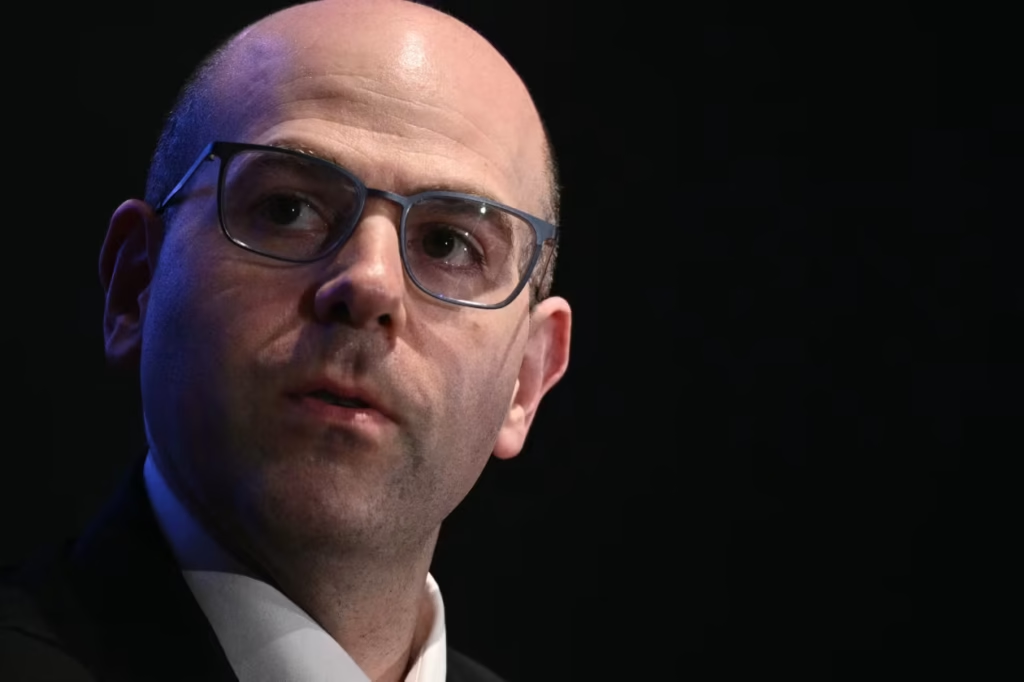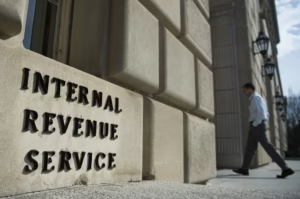President Trump has appointed Stephen Miran, the chair of the Council of Economic Advisers, to act as a temporary governor of the Federal Reserve.
On Thursday, President Donald Trump announced that he will choose Stephen Miran, a top White House economic adviser, to be a temporary governor of the Federal Reserve.
Trump announced in a post on Truth Social that he has selected Miran, the head of the Council of Economic Advisers, to fill Adriana Kugler’s seat until January 31.
“In the meantime, we will continue to search for a permanent replacement,” Trump stated.
White House officials did not appear prepared to choose a successor to Jerome Powell as Fed chair, according to Benson Durham, head of global policy at Piper Sandler. That conversation can now go forward in the upcoming months as Powell’s term expires in May 2026.
The Senate must approve Miran’s nomination. The Senate is unlikely to vote on his nomination until after the Fed’s next meeting, which is scheduled for September 16–17, according to experts.
Late October and mid-December are the Fed’s final two meetings of the year.
Miran has been a fervent supporter of the president’s tariffs since taking over as head of Trump’s economic council, and he recently maintained that there is no proof they have resulted in inflation.
Powell has been under constant pressure from Trump to cut interest rates, and Trump has harshly attacked Powell over monetary policy. Miran has echoed such critique.
Shortly before Thursday’s closing of the U.S. stock markets, Trump made his announcement. Following a poor auction of 30-year Treasury notes, the Nasdaq Composite COMP recorded a record close, while the Dow Jones Industrial Average DJIA and S&P 500 SPX closed lower.
Academically, Miran went to Harvard University. He has previously maintained that the U.S. trade deficit was too great, and several of his scholarly works had a significant impact in the early months of Trump’s second administration.
Miran’s study raising doubts about whether a strong currency was beneficial for the country was one paper that really caught Wall Street’s attention. Since the 1990s and the Clinton administration, the U.S. government has adopted that way of thinking.
Wall Street has been debating Miran’s stance on a declining dollar for months. In an attempt to reorganize the global financial system to better suit American interests, there has been speculation that the Trump administration could eventually bring together world finance ministers at Mar-a-Lago.
The discussion of a declining value of the dollar has affected everything. This year, the dollar “is being reduced in its centrality” in the global economy, according to Adam Posen, president of the Peterson Institute for International Economics.
Experts note that during times of market turbulence this year, the dollar has declined as long-term bond yields have increased. In emerging markets, this trading pattern is frequently observed. The dollar has historically increased as a safe refuge during financial crises.
Following newswire reports of Miran’s upcoming candidacy, the ICE U.S. Dollar Index DXY, a frequently watched indicator of the value of the U.S. dollar relative to its primary competitors, fell Thursday afternoon.
According to FactSet statistics, the dollar index was down 9.6% since the beginning of 2025 as of Thursday afternoon. The dollar index solidified its worst performance in the first half of a year since at least 1973 at the end of June.
Miran is academically qualified to serve on the Fed and should be confirmed by the Senate, according to Mark Spindel, author of a book on Fed independence. The Senate Banking Committee, which confirmed Miran to his current position in March by a party-line vote of 13–11, will first consider his nomination.
However, Spindel pointed out that Miran is unlikely to have much of an impact at the Fed during his brief tenure. “He’s just a seat warmer for a couple of meetings,” he explained.
Sen. Tim Scott, the chair of the Senate Banking Committee, promised to give the nomination careful thought. In a statement, the Republican from South Carolina said, “Miran is an accomplished economist and has been instrumental in advising on economic policy and advancing a pro-growth agenda.”
In recent months, Treasury Secretary Scott Bessent, who has turned into Trump’s market whisperer, has frequently eclipsed Miran.
Miran’s attempts to inform the public about the president’s tariff plans earlier this year “fell flat,” according to Spindel.
The president doesn’t have to decide until the next year, but Miran might utilize his time on the Fed to try out for a permanent position.





